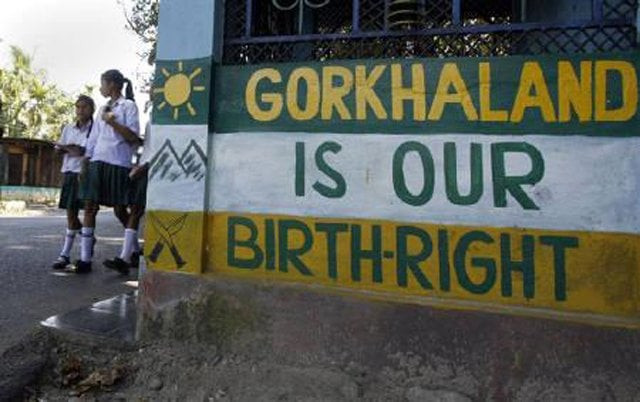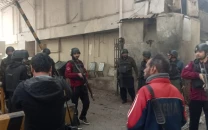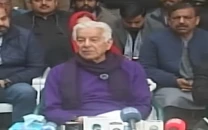India police fire tear gas to curb Darjeeling protests
Puffs of white smoke rose above Darjeeling's streets Saturday

Protesters hit tea, tourism in Darjeeling, India
PHOTO: REUTERS
At least 12 people have been injured in riots and arson attacks that have gripped the usually bustling area for more than a week and caused thousands of mostly Indian tourists to pack their bags and flee.
The unrest in Darjeeling comes during its peak visitor months, when travellers flock to hill stations to escape the scorching heat of the plains.
Naila Jaffri refuses government aid protesting Jindal’s arrival in Pakistan
Puffs of white smoke rose above Darjeeling's streets Saturday as dozens of riot police clashed with angry crowds shouting slogans demanding the creation of a new Indian state, prompting authorities to deploy the army.
"Police resorted to bursting tear gas shells as protesters pelted stones and bottles," Anuj Sharma, a local inspector general, told AFP.
"Several policemen were injured." The hills are famous for the Darjeeling tea whose production is jealously guarded.
Students of Islamia College University protest against Mashal's murder
It is also famed for its "toy train" - a 78-kilometer uphill ride from New Jalpaiguri. But the troubles have dealt a major blow to the crucial tourism industry, leaving the normally busy visitor spot deserted as local shops, schools and banks closed.
The latest unrest was triggered when local police carried out raids on the homes and offices of several members of the Gorkha Janmukti Morcha (GJM), which is spearheading the separatist movement. The GJM wants a new, separate state of "Gorkhaland" carved out of eastern West Bengal state, of which Darjeeling is a part. Tensions have risen recently over a decision to introduce the state's Bengali language in schools, angering the ethnic Nepali-speaking Gorkhas.



















COMMENTS
Comments are moderated and generally will be posted if they are on-topic and not abusive.
For more information, please see our Comments FAQ